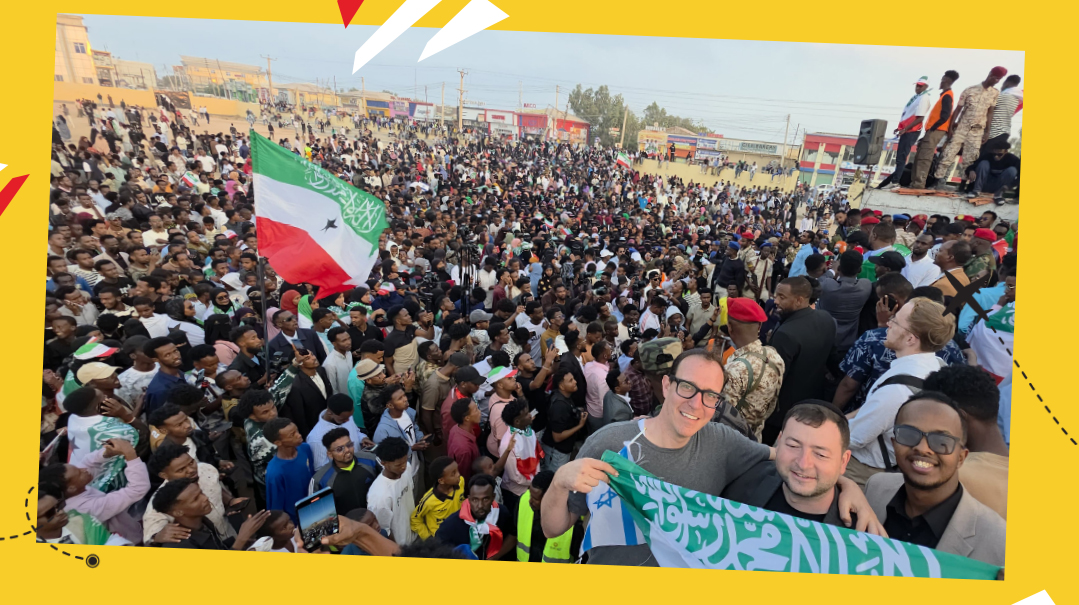Playing with Matches
| October 6, 2022Shadchanim tell it like it is

I'LL admit it. I never used to think of being a shadchan as a job. It was a chesed, certainly. Some people did it professionally, definitely. I knew that being a shadchan involved a G-d-given talent which included: a. being an extrovert who actually enjoys meeting with and calling up random people; b. being blessed with a brilliant little voice in your ear that whispers, “Him! With her!”; and c. being perseverant (not to mention the other "p" word) enough to see your suggestions through.
In other words, something far, far out of my stratosphere.
Aside from that, I’d never really thought much about what actually went into making a shidduch — the grueling, 24/7, non-stop marathon of calls, counseling, meetings, arrangements, and calming Chani’s hysterical mother on one line while placating Yanky’s angry mom on the other — until my own son started shidduchim.
Suddenly, my eyes were opened. These people were superheroes!
Now, shidduchim isn’t exactly a forgotten topic in our community. (In fact, if you search really hard, you might even find an Inbox letter or two on the subject.) But how often do we stop and consider what it’s like to be a shadchan?
We interviewed six shadchanim to get the inside scoop on their job. These shadchanim offer insight into what they do all day (spoiler alert: There is no little whispering voice), and pro tips for how to set yourself up for success in shidduchim.
But I’m going to start with the punchline. Every shadchan agreed that, for a job that’s all-consuming, underpaid, frequently stressful, and too often aggravating… it is absolutely, incomparably meaningful. And there’s nothing they’d rather be doing with their lives.
Our interviewees

What does a shadchan do all day?
What do I do all day? The phone-email-text-doorbell rings; boy needs to pick up the dating game, boy needs to return the dating game. Girl’s mentor calls, boy’s rebbi calls, dating coach is on the line. Boy picks up the keys for the car that he’s borrowing from my friend. Boy’s flight got canceled, he doesn’t have a smartphone and his parents don’t have WiFi service — can I please rebook him on a different flight? Doorbell rings again, girl drops off a flower arrangement as a thank you for setting her up. The phone rings again, it’s last night’s date. “Is now a good time to talk about the date?” Whoops, did I forget to get the Dor Yesharim numbers from both sides? Boy calls: where is there a geshmak place to shmooze for a third date? Boy’s mother calls: He left his hat in his yeshivah in Brooklyn. Is there a hat gemach in Chiacgo? (Problem solved: My next-door neighbor’s son’s hat should do the trick.) Urgent text from girl: Where am I going for tonight’s date? Heels or no heels? Answer the phone, girl’s mother calling. “It’s seven p.m. in the summer and the entire frum community is playing Tap Tap Trio on my block! Can you tell her date to go through the alley instead? I’ll put out a sign with our address written in red marker; it should be no problem to locate our house from the back. (He’s from Lakewood. He has no idea what an alley is.)
—Freyda Falik
On a typical day, I interview and follow up with singles. I also answer questions that come in via phone, email or text from singles, shadchanim, parents, coaches, and people searching for guidance in navigating the shidduch journey. As Oorah’s shadchan, I plan events: shadchan meetups, Shabbos retreats (we currently host two per year up at The Zone — Oorah’s campus in upstate New York), and mini-shabbatons in various locales.
–Raizelle Serebrowski
Lots of meetings! I meet an average of three new people per day and more on Motzaei Shabbos. Aside from guiding my own shidduchim through their dating process, I work as a dating coach, and give classes for seminaries and kiruv programs about the dating process. I also give online courses to train shadchanim and dating mentors.
—Merissa Gross
My role in a nutshell is to suggest names to parents, give them the information that I was given about the other side (basic background, schools/yeshivahs, job, neighbors and friends) and then wish them the best of luck in finding out more. In the chassidish world, the research process is the main part of a shidduch. Unlike the litvish world, where it’s assumed that the boy and girl will each try to learn more about the other while they’re dating, here the children rely completely on their parents’ research.
Yichus is very important and parents will do a lot of research into the extended family. Often, they’ll come back to me to ask why the uncle got divorced or what illness the sister had. Or they’ll discover that the girl was out of school for two months in tenth grade. That’s when I turn into a mediator, going back to the other side to delicately get this information.
–Miriam Kapilowitz
The one piece of advice I’d give every mother of girls
Look for the really important things; don’t focus on externals like the name of the yeshivah or how tall he is.
—Merissa Gross
Make sure you’re on the same page as your daughter; she should feel supported by her parents.
—Raizelle Serebrowski
How did you get into the field of shadchanus?
Around 27 years ago, I sat down with a few friends of mine in yeshivah (BMG, where I still learn), and we decided that we need more shadchanim in our community. We settled it right then and there. I walked over to some of the bochurim and said, “Shalom aleichem, I just became a shadchan today.”
But actually, I’d already made my first shidduch before that. Back when I was 15 years old, I told my best friend that he has to marry my sister. We joked about it for years… and eventually, he did! By now, I’ve made shidduchim for three of their children.
—Rabbi Meir Levi
My oldest daughter was a really top girl, baruch Hashem, and we got a bunch of high-quality suggestions. After she got engaged, I was filled with so much hakaras hatov that I decided to try to set up all of these other great boys who were suggested for her.
I also work as a sheitelmacher, which is a great field for a shadchan. I’m connected with a lot of women, and we’re always exchanging names. I can’t tell you how many shidduchim were made in my salon!
—Miriam Kapilowitz
A niece of mine had made aliyah with her family and asked me to help her find a shidduch. While looking into different ideas for her, I ended up making a shidduch for a neighbor, after which I married off my niece. At that point, I became known as a shadchan.
—Miriam Lewitan
What are the most important personality traits a good shadchan needs?
Patience! And empathy. And this one took me quite a long time to learn — understanding that different people have different priorities. What’s important to me doesn’t need to be important to you, and vice versa. My job is not to convince you on priorities, but to help you identify yours. A boy once told me that he wants a girl with a long neck. My first instinct was to say, “Go find yourself a giraffe.” Instead, I said, “I hear you. That’s a pretty specific detail, but we can try.”
A shadchan needs to let go of any gaavah. An experienced shadchan is not afraid to say that they don’t have all the answers, and will refer singles to others with more experience.
—Freyda Falik
You definitely need to be a people person, but not in-your-face. You need to be socially savvy, warm, a good listener, empathetic and respectful. You cannot have an agenda and you cannot take things personally.
—Raizelle Serebrowski
A shadchan needs to learn the balance between being empathetic and emotionally invested in their shidduchim — but not too much. Yes, it feels horrible and draining when your shidduch goes out ten times and then suddenly falls apart, but the only way you can be a shadchan is if you can wake up the next morning and go on.
—Rabbi Meir Levi
Do you have a specific process you use to suggest a shidduch, or is it more instinctual?
When I meet a single, I sit with them and really try to get to know them: what makes them happy, what type of person resonates with them, how they choose their friends, etc. These meetings can last from 30 minutes to an hour. (While I know there are some shadchanim who work solely off of résumés, my personal policy is not to redt a shidduch unless I’ve met the individual.)
Then, based on my notes, I’ll start thinking of ideas. Often, an idea will immediately pop into my head, and I’m off and running. But what I really like is to let ideas percolate. I need to reach the point where I really believe in it.
—Raizelle Serebrowski
I think about things like similarity in background, personality traits, home environment, and, of course, each side’s reputation and values. I don’t meet the singles in person but I will see a picture to get a sense of them. (I won’t share the picture with the other side unless I’m given permission.)
Most of the time I know at least one of the sides personally. If I don’t, I’ll do some minimal inquiries before suggesting the shidduch, so I don’t look like a fool!
—Miriam Kapilowitz
What’s considered a good success rate for a professional shadchan?
Making one shidduch per month is considered good. That’s after suggesting about 60 per month, and sending about half on a date or two.
—Miriam Lewitan
I have to laugh when people ask me how many shidduchim I’ve made. I don’t count. To me, success is getting the two people to meet. Once I’ve done that, HaKadosh Baruch Hu takes the reins.
—Raizelle Serebrowski
How do you establish boundaries in your field? In shul, in the supermarket, at simchahs… how do you avoid working 24/7? (Or do you?)
Unfortunately, there are no boundaries. People in shidduchim feel very, very desperate, and when they reach out to you, you need to smile, be nice, and give them time. Yes, it totally encroaches on family time. You’ll be on a Chol Hamoed trip, and while your kids are listening to Uncle Moishy or Avraham Fried, you’re on the phone trying to convince a mother that the boy her daughter went out with really isn’t a rasha, even though he didn’t offer her a drink.
It definitely makes your child not want to become a shadchan!
—Rabbi Meir Levi
In the beginning stages of a shidduch, I’ll maintain more boundaries. For example, if someone calls for more information while I’m in the middle of work, I’ll ask them to call me back. But as the research progresses to more advanced stages, all boundaries drop. I’ll make myself available whenever they need me — as my family knows.
Emotionally, however, the opposite is true. The more a shidduch progresses, the more emotional boundaries I set up, detaching myself to protect myself from getting hurt if it falls apart. People don’t realize how wrenching it is when, after we invest weeks of our lives in a shidduch, they give a no, and say thank you and goodbye.
—Miriam Kapilowitz
Still working on it… as my kids will agree!
—Freyda Falik
It’s hard to avoid people as we are hard to reach. When we’re “found,” it’s not easy to push people away. I remember once walking into a wedding hall together with a well-known rav in our community. As we came inside, a horde of people came over… to me. The rav turned to me and laughed. “Wow, I see you’re more popular than I am!”
—Miriam Lewitan
The one piece of advice I’d give every single young woman
You are much more than a picture! Believe in your inherent value.
—Raizelle Serebrowski
Be an active participant from the first date.
—Miriam Lewitan
Be patient with a boy who may not be experienced. I find that girls are much quicker to pull the trigger and dump the boy.
—Rabbi Meir Levi
Don’t overcomplicate things. Women can be more complex than men and make little issues into big ones for no reason other than that they’re scared.
—Merissa Gross
What changes have you seen in the shidduch system in the past decade?
The community has become a lot more involved. There are caring individuals who are investing time and resources to try different innovative ideas to help the boys and girls of our city. And this isn’t just in my beloved hometown of Chicago; it’s happening all over the world. This level of ahavas Yisrael is a true kiddush Hashem. Personally, I’m extremely grateful to my colleagues, both those in Chicago and on the East Coast. I’ve gained immensely from their experience and expertise.
—Freyda Falik
Friends seem to have a lot of say in the dating process, which I attribute to technology and social media. There used to be a lot more tzniyus in this parshah. Now, everything seems to be shared within the group.
—Raizelle Serebrowski
The biggest change in the chassidish world is that it’s becoming more common not to get engaged after one meeting, and many are allowing even three (with the l’chayim following the third meeting). This is a huge bend in the mesorah, and it’s a result of the modern ideas of self-awareness and communication filtering into our society. It used to be that children trusted their parents completely; they knew that a person grows on you, that loving is giving, that you build a relationship after marriage, and that was enough for them. But today, the children have become more outspoken, and parents themselves are no longer as self-assured; they want to make sure their child is confident about the decision. Even in the Satmar world, I’ve dealt with people who’ve met twice before getting engaged — which used to be completely unheard of.
—Miriam Kapilowitz
Sadly, people are asking for photos more often. On the upside, though, it’s much less common for mothers of boys to insist on meeting girls prior to the date. I’m also seeing that people in the yeshivish communities are dating for longer periods of time. People are allowing themselves the time they need to think. I think this may stem from the rising divorce rates; parents and daters have become more cautious.
—Merissa Gross
We’ve gone from pen and paper to digital; all résumés are now emailed, and many suggestions are made by simply emailing a résumé. This has taken a lot of the personal persuasion out of the process — which was a shadchan’s trademark for centuries.
—Miriam Lewitan
Unfortunately, things are only getting harder for girls in shidduchim today. At this stage of life, it’s harder to be a great boy than a great girl, so there are many girls chasing the same boy. (Personally, while I believe that the age-gap argument is real, I feel that rather than convincing bochurim to start dating earlier, when they may not be mature enough, we should encourage girls to start later. Here’s a suggestion: add a 13th grade for the girls.)
That’s why if I get a yes from a bochur, even if it’s a half hour before Shabbos, I’ll take the time to call the girl and make her Shabbos. This might be her first yes in a year and a half.
—Rabbi Meir Levi
What do you find most challenging?
Concerned parents. I find that some parents can make things challenging before the couple meets, by over-researching and trying to make sure that everything is perfect. The need to find what they consider to be the perfect match can mean that their priorities are not necessarily in line with what is really important, such as middos and values. Sometimes, parents also create issues after the couple starts dating by getting overly involved. The parent’s role is to be a source of support and advice for the children, but not to become the decision maker.
—Merissa Gross
People don’t realize that it’s an emotional roller coaster for the shadchan as well as the involved parties. A shadchan needs to be really resilient to keep redting more shidduchim, not knowing when success may come.
—Miriam Lewitan
When a parent and a child aren’t on the same page. For example, the parents insist on a learner, but as I’m doing my own research on the girl, I discover that her friends and teachers agree that she isn’t interested in supporting someone. When this happens, I’ll suggest the parents talk to their daughter again, and even involve their daas Torah if necessary. But sometimes there’s nothing you can do, and it’s just painful to watch. I know a woman who’s 47 and single because her parents thought no one was good enough for her and would ask nitpicky questions that brought each shidduch down. Rabbinic involvement didn’t help, and she never managed to break through to take care of her own shidduchim.
—Miriam Kapilowitz
What would you say is the biggest success of your career?
My biggest successes are the shidduchim I can’t talk about — the ones where there was a medical situation that no one knew about.
–Rabbi Meir Levi
I’ve had the big zechus to set up many people who are over 30, some over 40, as well as second marriages (with kids). Of course, I know it’s all from the Boss!
—Merissa Gross
Joining Oorah to become director of The Rebbetzins Shadchan Network. It puts me in touch with many singles as well as amazing volunteers who are making a difference in peoples’ lives. Even if we don’t manage to bring a shidduch to fruition, we serve as a place for singles to turn to for resources, networking, or just a listening ear.
—Raizelle Serebrowski
What was your worst mistake?
I always work very hard to make sure that the logistics of the date run smoothly. However, I recently set up a 38-year-old guy and forgot to tell him that the girl had changed the location of the date. He stood waiting for her for a long time, and she didn’t show up. When they eventually met, it turned out to be a “one and done.” I then set him up with a different girl — but told him the wrong day! I apologized profusely; he was such a big mensch about it. I told him that in the zechus of his forgiving me twice, surely the next girl would be his wife. Well, the brachah came true. The next girl he dated, he fell for straight away. It was a joy to be at their beautiful wedding in Eretz Yisrael a few months ago.
—Merissa Gross
I remember once hearing about a shidduch that surprised me so much, I couldn’t help but say so. Afterward, I felt bad; when you hear about an engagement, the only appropriate reaction is a joyful “Mazel Tov.”
—Miriam Lewitan
Deciding to hold information from the other side. As a shadchan, you may think certain details are unimportant and that it’s better not to share them, but I’ve learned that it’s not for me to decide what’s important to someone else. Of course, every shadchan must be well-versed in the halachos of shemiras halashon.
—Miriam Kapilowitz
Whats your funniest story?
One Pesach bein hazmanim, my son asked if a few of his friends could come for Shabbos. That Thursday, an RV pulls up in front of our house, and a bunch of bochurim — who look like they could use a good hose-down — pile out. To make a very long story short, they spent Shabbos in the RV parked in front of my house. Then, the day before they pulled out to continue on their road trip across the US, I set up one of the boys with a local girl here in Chicago. The only hiccup was that he hadn’t exactly packed dating clothing for this trip. Not to worry; we dressed him, got him a haircut, and managed to make him look civilized enough that she’d never know what kind of redneck she was going out with. Yes, they got married!
—Freyda Falik
I once had a boy come to me for Shabbos, and I set him up on a blind date without his even knowing about it. He was already traveling to my house when I came up with the idea and somehow convinced the girl’s parents to agree to a Motzaei Shabbos date. When the boy arrived at my house on Erev Shabbos, I wouldn’t let him walk through the door before he answered my question: “Do you trust me?” Warily, he said yes. (He was probably afraid that if he said no, he’d be on the street for Shabbos!) “Good!” I responded. “You’re going out Motzaei Shabbos!”
Today the couple has two kids, baruch Hashem!
—Raizelle Serebrowski
I once redt an American boy to an Israeli girl. Both sides were very wary because they knew nothing about the other family. In one conversation, the mother of the girl said to me, “How can I go into a shidduch when I don’t know the family at all? Who’s the grandmother? Who’s the great-grandmother?”
Now, I thought she was getting a bit extreme; did we really need to go back four generations? But I happened to know the name of a great-grandfather, so I told her, “The boy’s great-grandfather was so-and-so from Tzfas.”
The line went quiet. Then the mother said, “Are you sure? But that’s my grandfather!”
It turned out, the families weren’t such strangers after all!
—Miriam Kapilowitz
Most unlikely shidduch you’ve made
I once set up an Israeli Yemenite girl with an Ashkenazi South African. They both said no after the first date, as neither felt any connection. But in a stroke of siyata d’Shmaya, I had a niggling feeling that they’d made a mistake. So, two weeks later I called them both and convinced them to meet again. The rest is history.
—Merissa Gross
Is there a person or family you won’t redt shidduchim to? Why?
I find two types of people difficult to work with: Gold Diggers and Wheel Spinners.
Gold Diggers are people who live in an imaginary world, think their child is G-d’s gift to the world, and they deserve only the top everything.
Then there are the people who never make up their minds about a shidduch. You can spend hours on the phone redting shidduchim to these Wheel Spinners, answering the same questions over and over… There was one person who would call me often to ask for ideas for his son, but whenever I’d follow up on those suggestions, he’d respond, “Yes, we’re circling back to this.” They circled and circled and circled. I told him, “You’re circling more than a 747! At some point, you need to take off.”
—Rabbi Meir Levi
I always have to remember that I am a shaliach of HaKadosh Baruch Hu, and it isn’t for me to decide whether to set someone up or not based on any negative perceptions or uncomfortable experiences. If a shidduch is appropriate for a specific individual, then I can’t hold back from redting it.
—Freyda Falik
If someone exudes a sense of entitlement, this is a turn-off for me. I also find it difficult to work with someone who’s arrogant and consistently denigrates others.
—Raizelle Serebrowski
People who are unrealistic in their expectations. When you’re looking for a package that doesn’t fit you, you end up wasting everyone’s time.
Recently, I had a girl come to meet me. She was dressed modernly, but her parents said that they’re looking for a top bochur in one of the top Israeli yeshivahs. When I asked the mother if her own son (who’s in that yeshivah) would go out with a girl dressed like this, she conceded that he wouldn’t, but still insisted that “an American Ramat Beit Shemesh boy might be fine with it.”
—Miriam Lewitan
Whats considered the worst flaw for a boy or a girl in shidduchim today?
I’m going to rephrase this question: What would you consider one of today’s biggest mindset flaws among those looking for shidduchim? And my answer to this is that, right or wrong, many people stay away from a boy or a girl who comes from a broken home. What’s ironic is that, very often, these young men and women are so much more mature, resilient, and stronger in their middos because of what they went through, yet others are wary of doing shidduchim with them. Yes, it’s heartbreaking for the young man or woman because it’s not their fault, but this is the reality.
—Rabbi Meir Levi
Bad middos are a real deal breaker. But unless the boy/girl was disrespectful and didn’t act like a mensch, please give a shidduch a chance and don’t say no after one date. You would be shocked at how many shidduchim were made when the mindset shifted before the second date and ended up in marriage.
–Freyda Falik
Anger-management issues.
—Raizelle Serebrowski
Bad middos! If I get feedback about an extreme display of bad middos on a date, I won’t set that person up anymore. For example, a girl I set up reported that when she expressed her opinion in a discussion, the boy responded, “That’s what you think? That’s not very smart,” and was downright insulting.
Or a recent date that went to a hotel lobby, and when the waiter came by and told him there’s a 100 NIS sitting fee that includes drinks (the norm for hotel dates), the boy declared, “I’m not paying 100-shekels for a drink!” and took the girl out to the makolet next door.
Sometimes inappropriate behavior can be corrected with guidance. But when I see it’s extreme, I’ll stay away.
–Miriam Lewitan
A boy or a girl who can’t be mekabel eitzah from rabbanim/therapists/mentors is a huge red flag that usually shows they aren’t growing and improving, and won’t do well in marriage.
—Merissa Gross
Have you experienced any incidents of people hiding crucial information? How did you react?
Hiding is a strong word. If the information is being withheld based on daas Torah, then it’s not my place to get involved in what’s being shared or how and when it’s being divulged. In fact, I’d prefer not to know that information so that I can continue redting shidduchim for that person as I did before. Once I know something about you, it’s hard to erase that from my mind.
—Rabbi Meir Levi
I personally prefer that people don’t share such information with me, but they do need to talk to a rav to get guidance on when and what to reveal. I’ve discovered certain things when the other side was doing research. In that case, I’ll speak to the family to get reassurance that they will reveal what needs to be revealed, based on daas Torah.
—Raizelle Serebrowski
I would hope people ask their rav for direction when it comes to sensitive information. Sometimes it’s not meant for the shadchan to have that information and sometimes it is. It’s not considered “hidden” information if they got a psak halachah.
—Freyda Falik
I once had a case where the boy had certain questions about the girl’s emotional state while they were dating. I asked the parents directly if their daughter is emotionally healthy, and they said, “Of course! She’s just very deep and complex.” Based on this feedback, the boy continued, and they ended up getting married.
Sometime later, a relative of mine called for help with a particular shidduch, saying, “I see you’re doing complex medical shidduchim now.”
I didn’t know what she was talking about, and she said, “Didn’t you make so-and-so’s shidduch?”
It turned out that this girl had a psychotic episode when she was in high school, which was pretty public knowledge. But I didn’t know, and the parents didn’t reveal it. The couple got divorced soon after.
Even when a family does consult daas Torah and reveals information accordingly, should they tell the shadchan? It’s a tricky question, but I personally feel that it’s helpful for the shadchan to know. Too often, the couple breaks up after the third date when one side reveals the information. If I know in advance, I can set them up with someone who’d be more likely to be fine with their medical situation.
Obviously, the most important thing is to go with your own rav’s psak. But the message I’d like to emphasize is that you need to trust your shadchan. If you’re trusting me to find your child’s zivug, then you can trust me with her medical information. Believe me, I understand that no one is perfect and everyone has a story.
—Miriam Lewitan
There was a certain girl that I’d suggested to several people and everyone kept saying no. I didn’t know why she kept being rejected until, finally, one mother told me the reason they’re turning it down — because the girl has an emotional disorder. I was glad she told me because now I’d be able to fine-tune future suggestions.
That said, I’ve often found that even when one side withholds information, if the other side is meant to hear something, Hashem will let them hear it. For example, I redt a wonderful boy to a certain girl — he really had everything she was looking for, and her parents were very impressed with him. But in the course of their research, they spoke to a bochur who was in yeshivah with this boy, and the bochur commented that they should find out why his mother always sends him food. It turned out that the boy had Crohn’s disease, which the parents hadn’t divulged. (After consulting with their rebbe, they decided to go ahead with the shidduch.)
—Miriam Kapilowitz
At what age or stage do you find it more appropriate to deal directly with the boy/girl rather than the parents?
Since I deal primarily with a baal teshuvah population, many of the singles I deal with don’t initially involve their parents. But in general, it depends on the preference of the single. Usually, after age 25, I’ll deal with the single directly. And I’m happy to speak to the parents as well, with the single’s permission.
—Raizelle Serebrowski
Parents are their children’s best advocate — if parents and children are on the same page, then I assume nothing will get lost in translation. In that case, there may never be a need to speak directly to the single themselves. As a rule of thumb, I take the lead from the parents on whether or not to speak to the boy/girl directly.
—Freyda Falik
In the chassidish world, I generally don’t interact directly with the boy or girl. However, when it comes to an older single, there will often come a point where the parent gets exasperated and says, “I think it will be better if you talk to him.” And then I get into the role of psychological counselor.
—Miriam Kapilowitz
Older singles who’ve been in shidduchim for a few years should speak directly to the shadchanim to make sure it’s their voice being heard and understood. When dealing with the younger singles, I usually ask to speak to the boy or girl directly once there is real feedback involved, usually from a third date and on. It’s important to hear their emphasis/emotion/opinion first hand. Navigating a shidduch is a delicate process, and knowing where each person stands helps me do it more accurately.
—Miriam Lewitan
The one piece of advice I’d give every single young man
I feel that people are quicker to say no when they first start dating, thinking they may find someone better. This is a grave mistake; if you find a good girl with the traits you want, grab her.
–Merissa Gross
As confident as you think you are in yeshivah around your friends, you’re doing something you’ve never done in your life. Ask your friends what to talk about, prep yourself on how to make conversation. This girl waited and waited for you to get out of the freezer and give her a yes — and, finally, you come to the date, and you have nothing to say?
In my experience, it happens often that a girl with personality, recognizing that the boy is feeling shy and awkward, will carry the conversation herself. The guy comes back from the date thinking that it went great — “all I had to do was put on a nice tie and laugh at the right places!” Meanwhile, the girl feels the date was awful. Boys need to realize that the girl is not looking to run the show. She wants to see that he knows how to be a leader, a man.
—Rabbi Meir Levi
In your experience, how much does money come into play in shidduchim? Do most people ask about support? How often is this a deal breaker?
In Eretz Yisrael, where I live and work as a shadchan, it’s a very important part of the shidduch process. It’s often a deal breaker, especially if the boy wants to learn long term. Here, support is less of a factor than money toward buying an apartment. I’ve had shidduchim go down over money before the couple meets, and also after four dates when parents start getting into more financial detail.
The incidents that upset me the most are when the parents are very adamant on getting a large sum for their sons but when it comes to their daughters, they refuse to give any support at all. When it comes to finances, middos really come out — for the good and for the bad!
—Miriam Lewitan
I find that today, money doesn’t mean much. People are even wary of a suggestion from a rich family — what does it say about them that they want me? You see many daughters of rich fathers still sitting around.
I think we should start having a conversation about accepting working boys or fathers. I once heard that a boy said he’d really enjoy a father-in-law who’s still in kollel. But in the same breath, they said the boy wants an apartment in Bnei Brak.
“He’s delusional,” I answered. “Because if he expects an apartment in Bnei Brak, the father-in-law would need to leave kollel and go out to work!”
Parenthetically, I’d love to start a discussion about having more acceptance as a community for men who are working, following the model that our fathers and grandfathers have always done.
—Miriam Kapilowitz
With my population, money isn’t an issue that necessarily involves the shadchan. Occasionally, there is talk about support. I encourage the two sides to speak to each other openly about their expectations. It’s much healthier and the shadchan doesn’t need to know the financial arrangements.
—Raizelle Serebrowski
I find money to be very important in the yeshivish communities when it comes to the boys and girls who want either shorter- or longer-term learning. When the singles are younger, it is usually a deal breaker but I find it becomes less relevant as the daters grow older because they become more financially independent.
—Merissa Gross
Despite the stereotype today that every parent of a boy is looking for the highest bidder, that’s definitely not the case with everyone. There are people for whom money is important, and others who don’t care as much — just like it’s always been. There are also very different attitudes to money out there. You can have a girl who’s worked and put away $150,000 in savings and one person will say, “Who cares? I want to know what her parents are going to contribute!” and another will say, “Great! I’d rather my son be independent and not rely on support from the shver.”
Of course, there are the people who have ridiculous expectations. Like the parents who are willing to give their kids $2,500 a month and demand the other side do the same, because their daughter needs to be able to eat out for lunch every day on Paran and serve elaborate meat boards every Shabbos to 15 bochurim. (See the serial Growth Curve running right now in Mishpacha.)
So, yes, money can be a deal breaker, but I find it’s usually not.
—Rabbi Meir Levi
Our advice to people in shidduchim
What questions do you feel are most helpful for a parent to ask in the research process?
My cardinal rule is this: Don’t call someone up and say, “What can you tell me about this person?” You won’t get anything substantial. It’s best if you get specific: “I heard he’s nice, but that sometimes he gets anxious under pressure. Do you find that?”
Also, make sure you know what you’re asking. Like the mother who called up and wanted to know if the girl had “tochen.” She had no idea what the word tochen meant, but she knew she was supposed to ask about it. The person responded, “She lost her tochen a few years ago, but now she found it again.”
“Oh, perfect!” said the mother.
—Rabbi Meir Levi
If you hear that he or she is known for a certain middah, ask for examples and stories that portray that middah.
—Raizelle Serebrowski
Ask about middos, and questions that can help you try and understand the personality. Make sure you understand the type of family your child may be joining. And don’t forget to check with your child about what they feel is important for you to find out.
—Miriam Lewitan
How much research is helpful, and when is it too much?
Do enough research that when you send your child out, you’re prepared for a mazel tov.
—Freyda Falik
The way a person researches very much reflects their personality. A pedantic type of person will ask very specific, detailed questions, while someone more laid-back will ask fluffier, general questions. I think a person’s hishtadlus in shidduch research really depends on how Hashem created them.
—Merissa Gross
My rule of thumb is that if you’ve made three or four phone calls and the info is consistent, that’s enough to say yes. After that, meeting the individual is more revealing that ten research calls.
Also, everyone has their own priorities, but I think it’s important to remember that things like a nice family are bonuses; what’s most important are the two people themselves. And it blows my mind how much public opinion is taken into consideration when deciding who to date.
—Raizelle Serebrowski
What things do you recommend a couple do when dating to truly get to know each other and see the real middos?
Try to diversify locations and activities. After each date, think about what else you’d like to find out about the person and prepare a way to do that. This could be by sharing stories, anecdotes or thoughts, and asking for their response.
—Miriam Lewitan
I’m a big advocate of getting out of the lobby as soon as possible, certainly after the first three dates. And the Perfect Matches game is unbelievable. So many shidduchim have come from it.
—Rabbi Meir Levi
In the chassidish system, where they meet for a very limited time, I’d recommend preparing scenarios in advance to bring up in the conversation and see how the other side reacts. For example, tell him a frustrating story that happened to you, and ask him what he would do in that situation. Gauge his response: does he wrinkle his nose? Flinch? Does his answer involve checking daas Torah? Or reflect his chesed?
—Miriam Kapilowitz
Why do you think the divorce rate in our community is rising of late? Do you think it’s related to anything people are doing wrong in the dating process?
I don’t think the shidduch process is the issue; I believe our system of guided dating is great when used properly, as it encourages people to date ONLY if they’re ready, with the use of a mentor, after a lot of research, and with a clear head. Divorce often happens because people are dating when they’re not ready; these people have things to work through before getting married.
—Merissa Gross
Really, this is a question for daas Torah. I definitely think that people’s expectations about what they deserve contribute to the rise in divorce. But at the same time, we need to acknowledge that everything comes from Hashem.
—Raizelle Serebrowski
There’s no way to know for sure but I’d say there are several factors. The younger generation has little patience, and this filters into everything, including building an everlasting relationship. Marriage takes time, hard work, compromise, and patience.
—Miriam Lewitan
(Originally featured in Mishpacha, Issue 931)
Oops! We could not locate your form.







